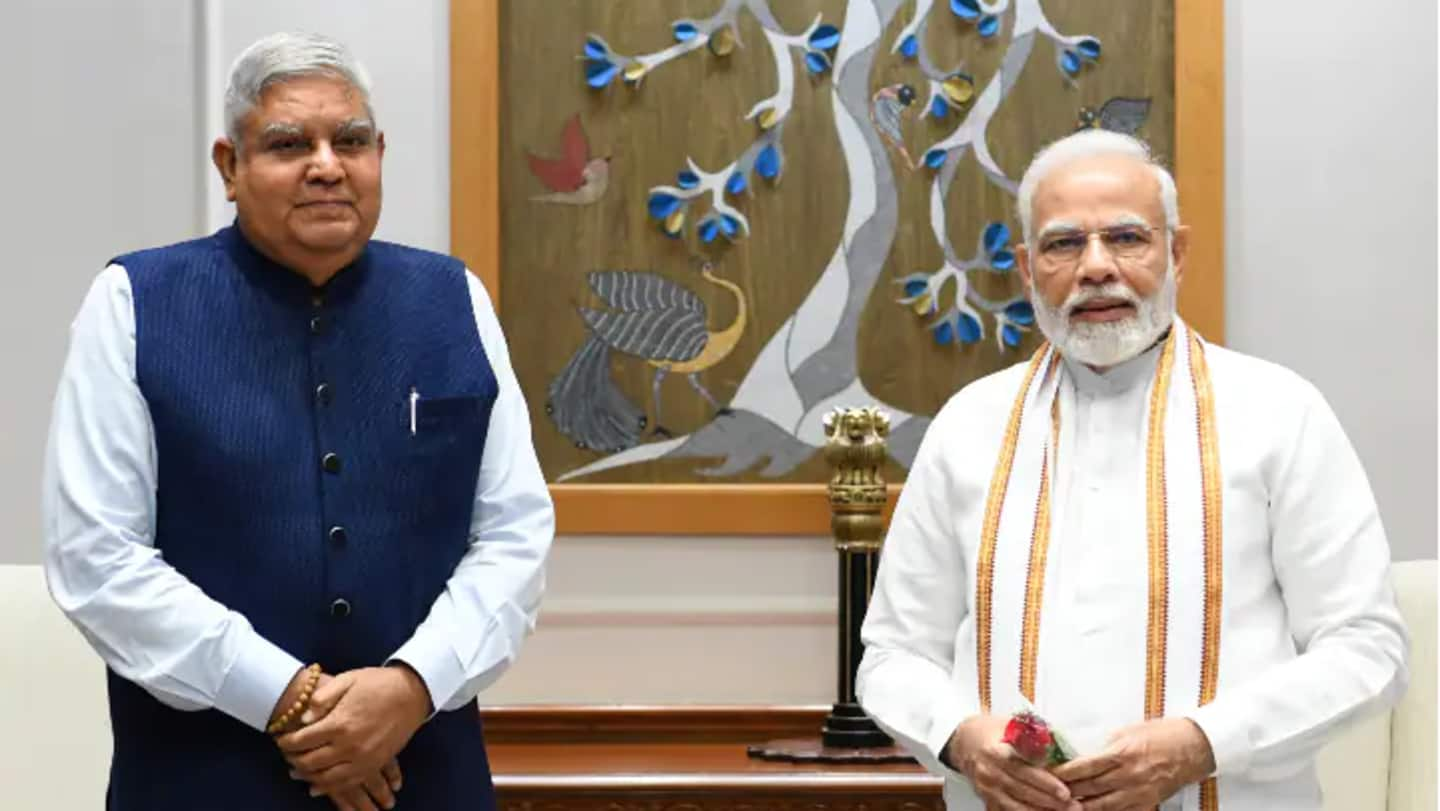
#NewsBytesExplainer: The significance and powers of vice president of India
What's the story
The Bharatiya Janata Party-led (BJP) National Democratic Alliance (NDA) has nominated West Bengal Governor Jagdeep Dhankhar as its candidate for the August 6 vice presidential election.
While the deadline for filing nominations is Tuesday (July 19), the Opposition has yet to name its candidate. So, uncertainty over the contest still remains.
Here, we go through the significance and powers that this post has.
Context
Why does this story matter?
The vice president of India presides over the lower house of the Parliament, i.e. Rajya Sabha.
In the absence of India's president due to various reasons, intentional or unintentional, the vice president becomes acting president until the president resumes office or a new president is nominated.
Unlike the presidential election, MLAs do not vote in the electoral college for the vice president in India.
Details
What constitutional provisions grant powers to vice president?
After the president, the vice president is India's second highest constitutional post.
The Constitution has provisions in different articles, particularly Articles 63, 64, and 65, that mandate the vice president's position in the country and allow them exceptional powers.
As stated in Article 64, the vice president serves as the ex-officio chairman of the Council of States, i.e., the Rajya Sabha.
Significance
Can work as president under unavoidable circumstances
According to Article 65, the vice president functions as president until a new president takes office if the president's position becomes vacant due to death, resignation, removal, or any other cause.
Furthermore, if the president is unable to fulfill their obligations due to absence, illness, or any other reason, the vice president must discharge their functions on the president's behalf.
MPs
Who elects the vice president in India?
The vice president is elected indirectly by an electoral college comprised of 788 members of both houses of Parliament (both elected and nominated), according to Article 66 of the Constitution.
The voting is done in line with the proportional representation system, with a single transferable vote, and the value of each Member of Parliament is one.
Election
How is VP election different from presidential election?
The only difference between the presidential election and that of the vice president is in the composition of the electoral college.
For the vice president, the electoral college comprises both elected and nominated members of Parliament, while only elected members have a say in the case of the president.
Also, the electoral college for the vice president doesn't include members belonging to state Assemblies.
Eligibility
Who is qualified for the position?
Only an Indian citizen above 35 years of age is eligible to hold the vice president post. They shouldn't be a Member of Parliament or a legislator of any state or a UT.
They shouldn't be holding any office of profit under the central or state governments or under any local or other authority, as per Article 66(4) of the Constitution.
Duration
Term of office for the vice president
The vice president may leave office before the end of their term by resigning to the president.
He or she may also be removed through a resolution of the Council of States passed by a majority of all the then members of the Council and agreed to by the House of the People, as per the law.